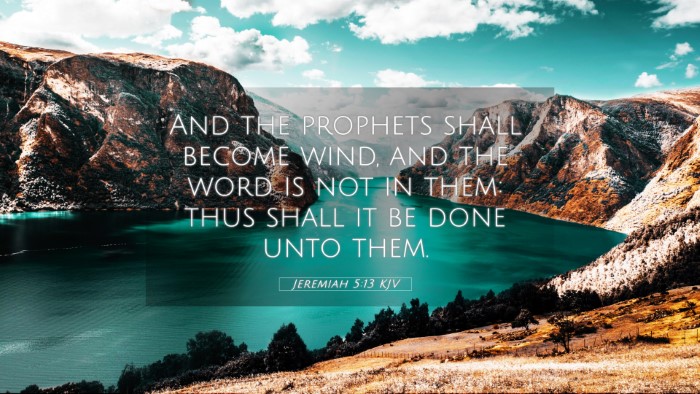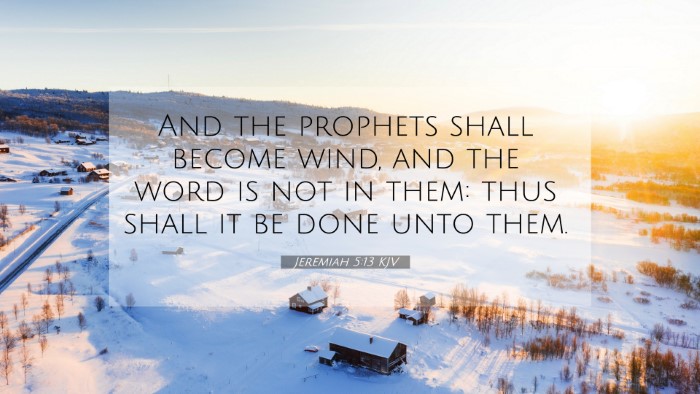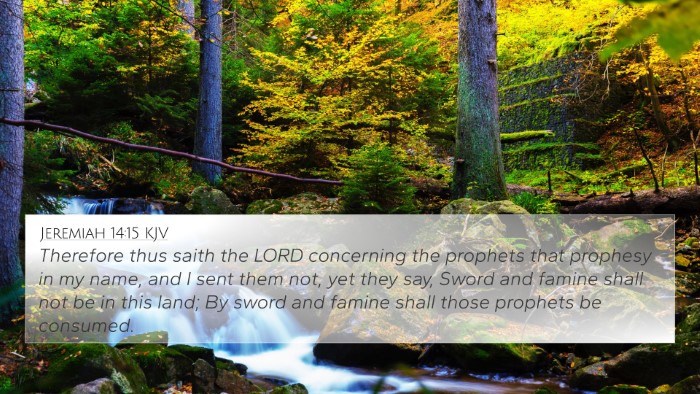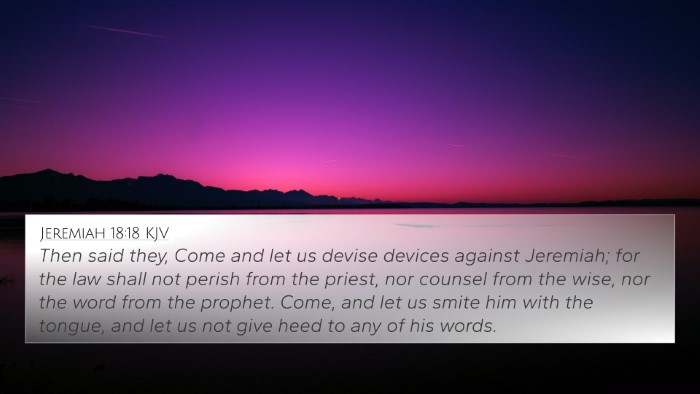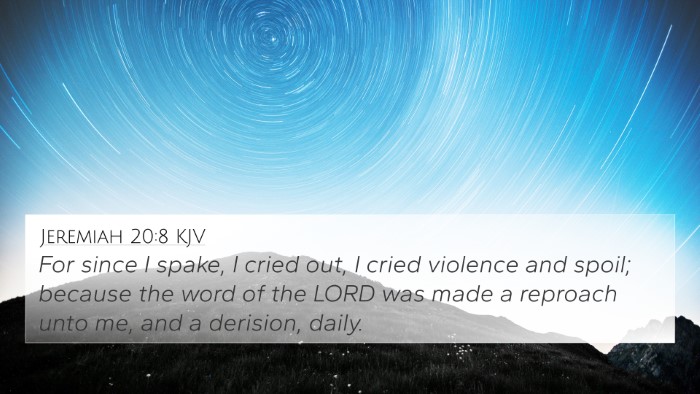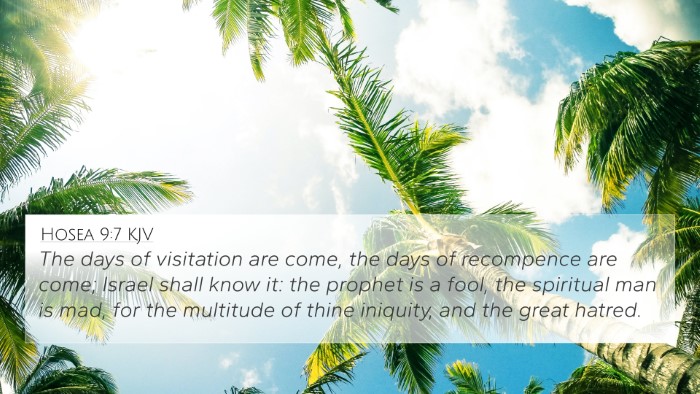Understanding Jeremiah 5:13
Jeremiah 5:13 states:
"And the prophets shall become wind, and the word is not in them: thus shall it be done unto them."
Summary of the Verse
This verse communicates a poignant message about the false prophets in Jeremiah's time. It illustrates how the divine word had been corrupted, reducing the prophets to mere 'wind' — a metaphor for emptiness and powerlessness. Here, the trustworthiness of prophetic declarations is called into question, indicating that without divine truth, their messages hold no value.
Insights from Public Domain Commentaries
-
Matthew Henry:
Henry emphasizes that the prophets lack true substance; they offer nothing but hot air. He points out that the word of God is absent in their messages, leading the people astray. The implication is that genuine prophecies must be founded on God’s revelation.
-
Albert Barnes:
Barnes reflects on the consequences of falsehood among the prophets, suggesting that their messages fail because they do not originate from God. They mislead the people, resulting in spiritual decay. Prophets who do not deliver God’s word are essentially ineffective.
-
Adam Clarke:
Clarke provides insight into the cultural context of Jeremiah, explaining that the lack of true prophetic voice results in societal decay. He stresses that true prophecy is essential for moral and spiritual guidance, and the absence of such leads to divine judgment.
Bible Cross References
To enrich our understanding of Jeremiah 5:13, we can explore connections between this verse and others in Scripture:
- Deuteronomy 18:20-22: Discusses false prophets and the importance of prophetic accuracy.
- Ezekiel 13:3-9: Condemns false prophets and their misleading visions.
- Matthew 7:15: Jesus warns about false prophets who are deceptive.
- 1 John 4:1: Urges believers to test the spirits to discern truth from falsehood.
- Jeremiah 14:14: Illustrates how false prophecies can mislead God’s people.
- Acts 20:29-30: Paul warns the Ephesians about wolves among them that will distort the truth.
- 2 Peter 2:1: Talks about false teachers rising among believers, echoing Jeremiah's concerns.
Thematic Connections
This verse helps us delve deeper into the theme of prophetic authority and the consequences of failing to uphold God’s truth. The lack of genuine prophecy leads to:
- Moral decay in society
- Spiritual blindness among the people
- Divine judgment as a result of iniquity
Cross-Referencing for Deeper Study
For those studying Scripture, understanding connections between verse themes can enhance comprehension. Utilizing tools for Bible cross-referencing, such as a bible concordance or a bible cross-reference guide, can help uncover deeper meanings. Tools that help identify connections between Old and New Testament prophecies improve our knowledge of the narrative arc of the Bible.
Exploration Questions
Here are some questions to consider while contemplating Jeremiah 5:13:
- What are the consequences of following false prophets today?
- How can we discern the true message of God amidst misleading teachings?
- In what ways does Scripture encourage the pursuit of truth?
Conclusion
Jeremiah 5:13 serves as a stark reminder of the importance of true prophecy grounded in God's Word. Through comparative Bible verse analysis and understanding thematic Bible verse connections, believers can navigate the complexities of spiritual leadership and discernment. Cross-referencing related Bible verses further enriches one's study of Scripture, leading to a robust understanding of God’s message and intent.

